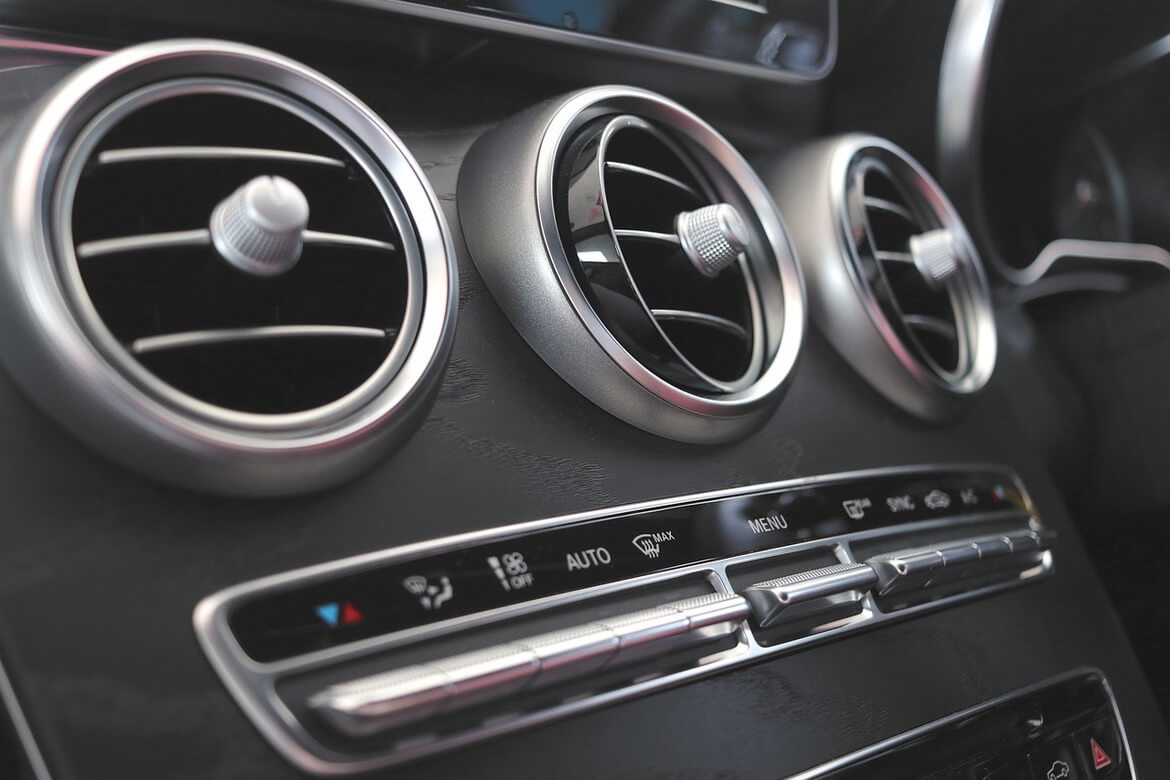Common Car AC Problems and How to Fix Them

The Great British Summer has finally arrived which means it’s time to get summer driving ready. Whether you're road tripping to the family campsite, a seaside staycation, or a music festival, fully working car AC is a must for those positive vibes.
Want to stay cool this summer? Learn how to maintain your car air conditioning, spot problems early and know the right AC repair for each issue.
Why air con matters

There’s nothing better than cranking the tunes, and your AC, up on a sunny day. So, when your car’s not cooperating, it can be really frustrating.
There are many reasons why a faulty AC system can be inconvenient and sometimes even dangerous, such as:
- Driving with broken AC can be very warm and uncomfortable in the summer.
- In the winter, a faulty air conditioning system will struggle to demist the windows. You could be left with reduced visibility, putting yourself and others in danger.
- A broken AC system may work the engine harder meaning you’ll burn through your fuel faster. That’s a lot of unnecessary spend!
- Ignoring a fault in your car’s air con system could end in a hefty repair bill.
So, it’s super important to do car AC checks regularly and act quickly if there’s ever an issue.
Common issues, the causes and how to fix them

Knowing how to spot air con issues sooner, rather than later, will mean you get things sorted quickly. The faster you fix an issue, the less chance there is of any further damage occurring to your car’s air conditioning.
Let’s take a look at the most common problems, their causes, and the fix:
Warm air
Warm air is the most common sign that your AC is broken. If you feel like the air being blown from the vents isn’t as cool as it once was, or the air feels no different to when the AC is switched off, you have a problem.
Cause:
There are several reasons why your air con could be blowing warm air. The most common cause is a loss of refrigerant. This can happen due to a leak or because your car’s refrigerant levels are too low. Refrigerant is the liquid that circulates through your car’s AC unit removing the heat and humidity from your car.
A leak sounds easy to spot, right? Wrong. Unlike motor oil, the refrigerant liquid evaporates as soon as it leaks out, so it can be extremely hard to see.
Fix:
To accurately diagnose the issue, you’ll need to take your car to a trusted garage for a car air con leak repair. The car AC specialist will inject a dye into the system to trace the leak. They’ll then be able to repair your air con, so you’ll soon be driving around with fresh, cold air again.
Bad smells
A damp smell coming from your AC is one way to ruin the road trip (it’s even worse than a road trip without any snacks!).
Cause:
A build-up of bacteria and mould can cause a damp smell to blow through the air vents. This is most common in old cars, where bacteria have been growing behind the dashboard for years.
Bad smells are also common in cars where the air con is barely run, eventually the excess water on the coils will dry out and bacteria will build up over the winter months. Then, when you switch the air con on in summer the musty smell fills your car – nice.
Fix:
This is one of the AC problems that you can attempt to fix yourself, fingers crossed!
Your car’s air conditioner has a filter which removes dirt, dust, and odours from the air it’s pulling into the car. FYI: this is separate from your engine’s air filter. A dirty air filter will reduce the amount of airflow around your car, allowing moisture to build up inside the AC system.
You can try fix the issue by installing a new air filter. Be sure to check your owner’s manual for details on which filter you need and how to install it. If this doesn’t clear the smell, you’ll need to seek help from the experts at your local, trusted garage.
Prevention:
Good news! There are steps you can take to prevent mould and bacteria from building up on your AC unit. Check them out:
- Turn off your air con 5 minutes before you end each journey but leave the fan on. By doing this, you’re giving the AC system time to dry out each time you use it. This will help reduce the build-up of damp.
- Every few months, spray an antiseptic into the exterior air vents (where your car pulls air from outside into the car). This may be an obvious one but always make sure your AC is on the setting that pulls air from the outside in. The spray will then be pulled into the ventilation system and will start to kill any mould or bacteria.
Unusual noises
You should NEVER ignore funny noises coming from your car, they could be serious and leaving the issue will only worsen it.
Cause:
Unusual noises can be caused by a whole variety of problems. Here are the most common causes and the noise you’ll hear with each problem:
- Rattling, groaning, or knocking noise – usually due to loose or damaged mounts on the air compressor.
- Vibration sound – AC hose rubbing together with another hose in the engine.
- Buzzing sound – usually occurs after an air con service if the system has been overcharged with refrigerant.
Fix:
Since there are so many unusual noises and causes, you will need to get the pros to check your AC so they can carry out a car AC repair.
DIY air con maintenance
Whilst many of the AC issues require help from an experienced mechanic to fix, there are a whole list of easy things you can do to maintain your air con and keep it running well. Looking after your air con will lower the chances of any AC problems arising – it’s a no brainer!
- Service your air con in line with your owner’s manual (FYI the air con system does not get serviced in your usual car service).
- Use your air con all year round to reduce damp build up, it’ll also reduce the number of times you need to get it re-gassed!
- Change the cabin air filter according to the timings specified in your owner’s manual.
- Keep your windows shut when you have the AC on so the system can work to full effect.
Looking for more car maintenance tips? Learn how to care for your wheels at home with our handy guide.
Posted on: 14th June 2023



